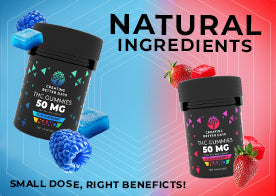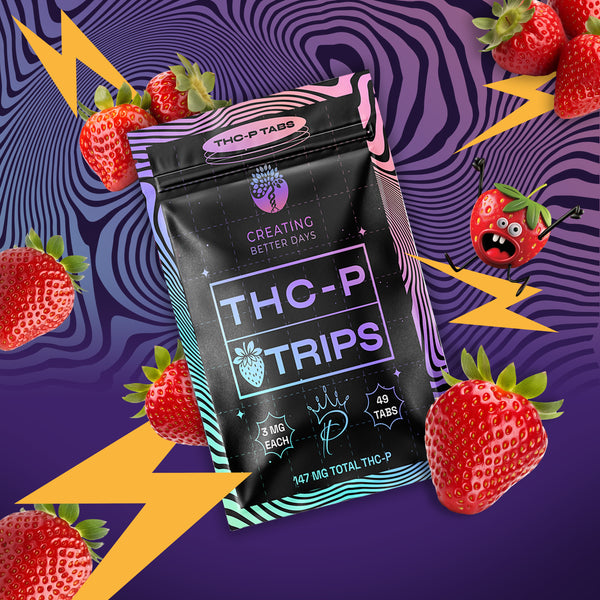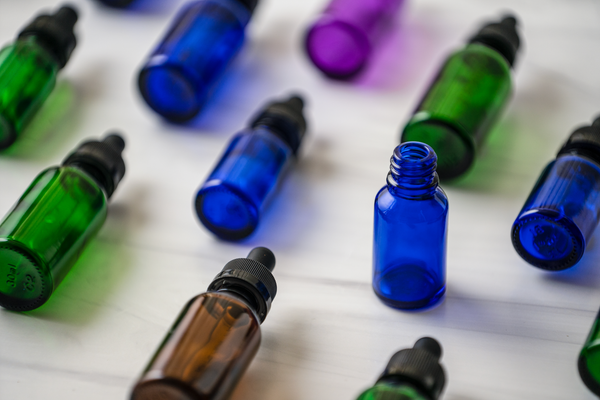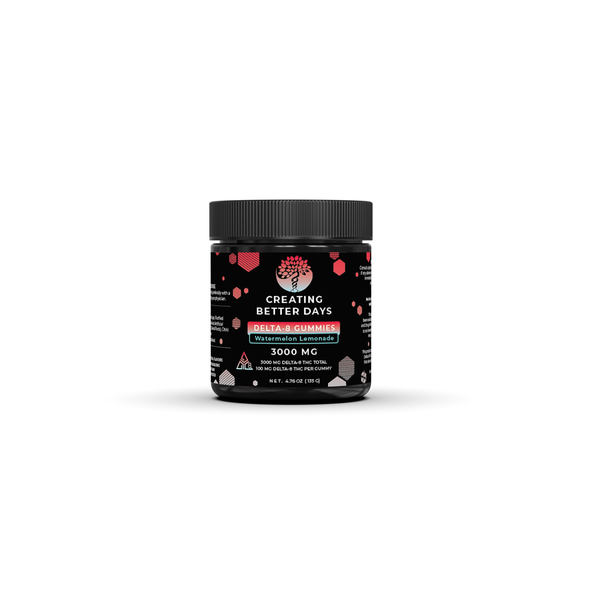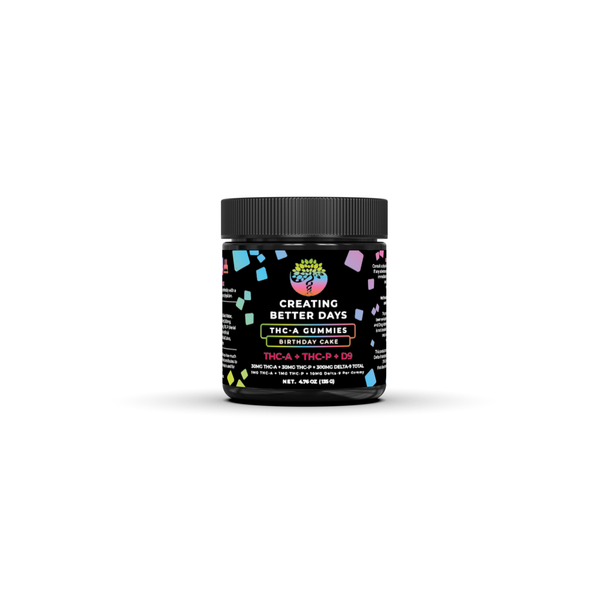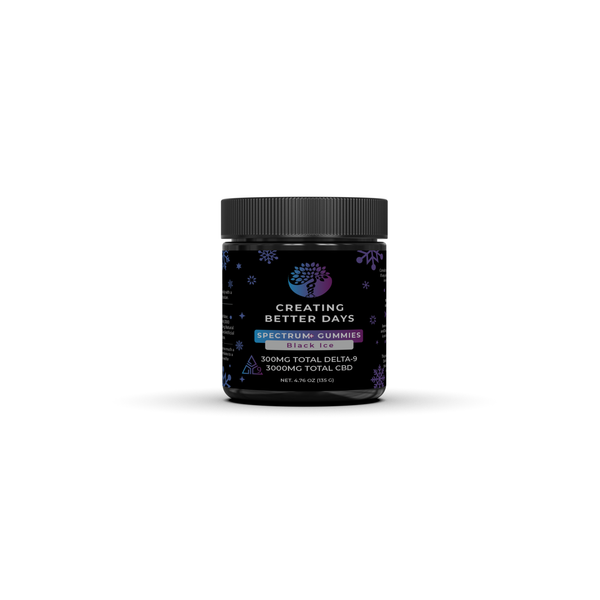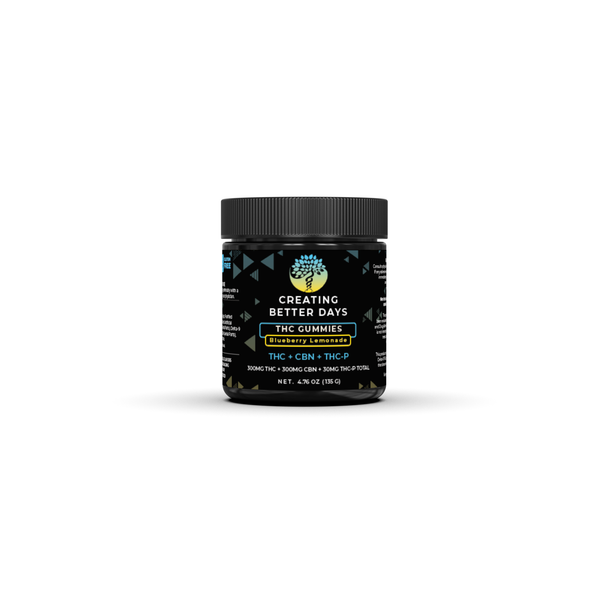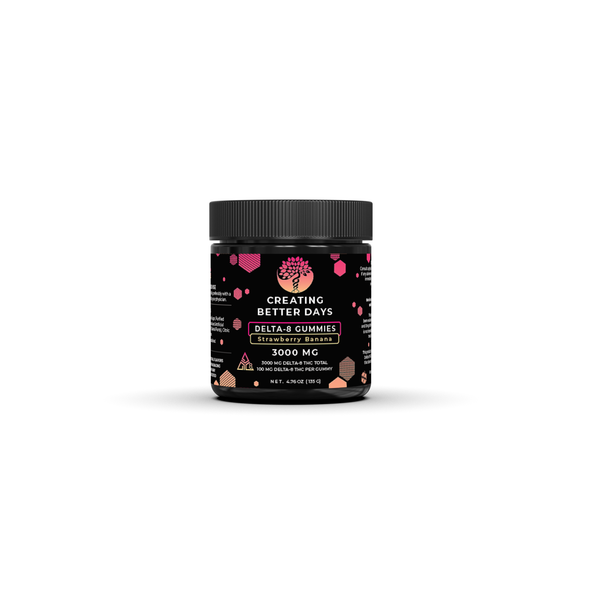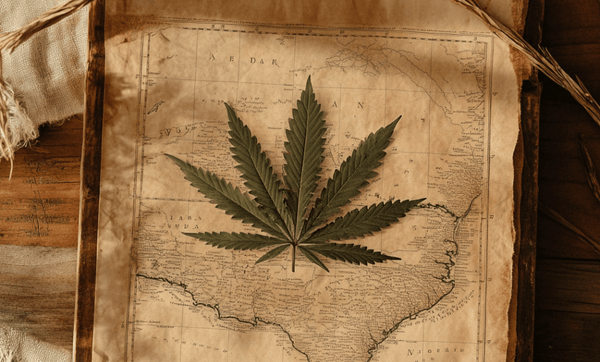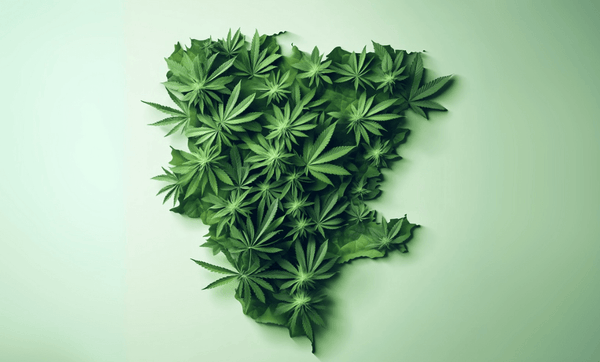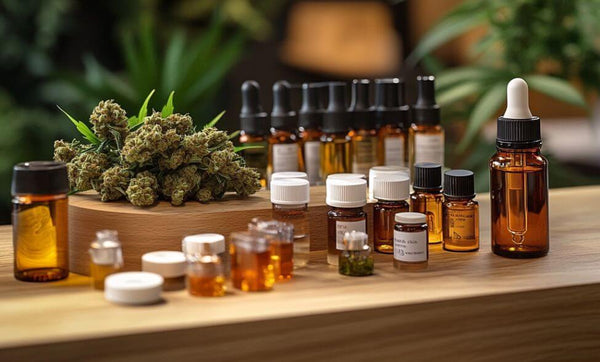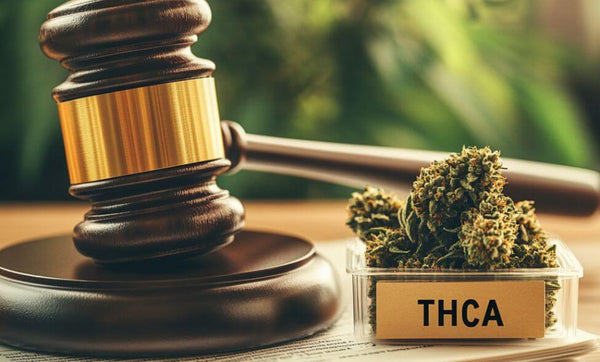
Is THCA Legal?
As you explore the beautiful potential of all the cannabinoids, you might come across the question: Is THCA legal? The answer contains numerous layers, like your preferred dip, but we'll simplify it so you can understand it without getting confused.
Tetrahydrocannabinolic acid, or THCA, functions as a less intense version of THC because of its gentler properties. THC is known for its psychoactive effects whereas THCA remains a non-psychoactive compound found in cannabis prior to heating. The legal status of THCA changes based on your location, much like your favorite song, but with a difference. Let's explore what THCA products mean for you if you're considering purchasing gummies or tinctures.
Table of contents
Key Takeaways
-
Is THCA federally legal? Yes, THCA is federally legal if derived from hemp and contains less than 0.3% THC.
-
State laws on THCA vary, so always check local rules and regulations for the latest updates.
-
Many states have legalized THCA, especially in cannabis-friendly regions.
-
Hemp-derived THCA is generally legal, but some states have stricter rules or medical restrictions.
What is THCA?
THCA exists as THC's raw, unactivated form inside fresh cannabis plants. Heating, smoking, or vaporizing cannabis transforms THCA, while fresh cannabis contains it. Through decarboxylation, which happens when cannabis is heated or used recreationally, it becomes the more recognized THC. Although THCA does not create psychoactive effects like THC does, it remains an essential component of cannabis plants.
THCA products, such as gummies, are becoming popular among individuals who want to reap cannabis perks without experiencing a high. The fascinating compound THCA intrigues people either because of its subtle nature or because of its versatile properties.
How is THCA Legal?
So, how is THCA legal? Its usage depends entirely on both its location and application method. The chemical precursor status of THCA to THC places it in a legal gray area throughout the United States. According to the 2018 Farm Bill federal law allows hemp-derived products to remain legal when their THC content stays below 0.3%. The molecule THCA doesn't create legal issues when in its natural form but becomes problematic once it converts to THC through heat or processing.
What is the Legal Amount of THCA?
Trying to pin down the legal amount of THCA is like trying to count grains of sand on a beach—it's a bit of a moving target. The ability of THCA to transform into THC frequently determines its legality.
Here's the deal: The 2018 Farm Bill established that for federal approval products must have less than 0.3% total THC content by dry weight which includes both THCA and THC. If those products cross this threshold they could become federally regulated substances.
The amount of THCA, which is expressed in milligrams or as a percentage of the product's total weight, is often subject to additional limitations in states that permit both medical and recreational marijuana use. The regulations for THCA concentration differ between states, with some enforcing strict limits while others use more flexible standards. States approach cannabis laws like a trivia game where some have all the answers and others continue searching for solutions.
Although multiple states are accepting cannabis more widely, interestingly, some areas have decided to enhance regulations governing hemp. The 2023 Farm Bill addressed unintended consequences and problems from the 2018 Farm Bill concerning psychoactive hemp products like THCA. President Biden's extension keeps the 2023 Farm Bill active until September 30, 2024, but the regulatory position of THCA still lacks definition. Legal developments keep shifting without warning, much like trying to catch a shooting star.
Is THCA Legal In My State?
Ah, the million-dollar question. What states is THCA legal in? The legal status of THCA varies between states as unpredictably as in the Wild West era. While some states have adopted hemp-derived cannabinoids completely, some remain undecided, while others actively prohibit them. THCA's legal status changes across states based on its source from hemp or cannabis and the existence of state-specific cannabis legislation.
Here's a quick overview of the legality of THCA across the U.S. to give you a clearer picture of where you stand. This list is based on current laws, but do keep in mind that changes may occur, and it's always smart to double-check with your local government.
Arizona: Legal: Cannabis was legalized for recreational use in November 2020.
Arkansas: Legal: Industrial hemp containing less than 0.3% THC is not subject to THCA regulations.
California: Legal: If THCA is made from hemp and is within the 0.3% delta-9 THC level, it is permissible.
Colorado: Legal: THCA can be purchased and possessed by adults in this cannabis-friendly state.
Connecticut: Legal – Both medical and recreational cannabis are legal with no restrictions on THCA.
Delaware: Legal: If THCA is generated from hemp, conforms with Farm Bill rules, and has a THC content of less than 0.3%, it is legal.
Florida: Legal: the only THC that is prohibited outside of the state's medical cannabis program is delta-9 THC.
Georgia: Legal: If THCA is made from hemp and stays within the 0.3% delta-9 THC restrictions, it is permissible.
Illinois: Legal: THCA is unrestricted in Illinois. Cannabis is legal for adults aged 21 and up.
Indiana: Legal: Since Indiana complies with federal hemp regulations, THCA generated from hemp is probably acceptable.
Iowa: Legal: Since Iowa complies with federal laws, THCA generated from hemp is permitted there.
Kentucky: Legal: Despite the state's stringent cannabis regulations, THCA generated from hemp is unregulated.
Maine: Legal: Since recreational cannabis use is permitted, THCA can be bought.
Legal in Maryland: THCA is permitted as long as it is derived from hemp and satisfies the delta-9 THC concentration restrictions.
Massachusetts: Legal: Since Massachusetts is a cannabis-friendly state, adult use of THCA products is permitted.
Michigan: Legal: Recreational cannabis is legal, and THCA is freely accessible.
Minnesota: Legal: Since recreational cannabis is permitted, THCA can be freely acquired and used.
Missouri: Legal: THCA products that comply with the Farm Bill are accessible, and medical marijuana is permitted.
Montana: Legal: THCA products are unrestricted in Montana, where recreational cannabis use was just legalized.
Nebraska: Legal: In Nebraska, hemp-derived goods that contain less than 0.3% THC are permitted.
Nevada: It is legal in Nevada for both medical and recreational purposes, and THCA is available.
New Hampshire: Legal: As long as it comes from hemp and contains less than 0.3% THC, THCA is acceptable.
New Jersey: Legal: There are no restrictions on THCA; both marijuana and hemp are legal in the state.
New Mexico: Legal: Recreational cannabis has been legalized, and THCA products are accessible.
New York: Legal: Recreational cannabis is legal, so THCA is available without restrictions.
North Carolina: Legal: No restrictions on hemp-derived THCA, but keep an eye on THC levels.
North Dakota: Legal: Hemp-derived THCA with less than 0.3% THC is legal here.
Ohio: Legal: Recreational cannabis has been legalized for adults 21 and older, and THCA products are allowed.
Pennsylvania: Legal: THCA derived from hemp with less than 0.3% THC is legal under federal guidelines.
South Carolina: Legal: Hemp-derived THCA with less than 0.3% THC is legal.
South Dakota: Legal: While marijuana remains prohibited, Farm Bill-compliant THCA products are legal.
Tennessee: Legal: THCA products are legal if they adhere to federal delta-9 THC limits.
Texas: Legal: Since Texas complies with federal cannabis regulations, THCA, which complies with the Farm Bill, is permitted.
Virginia: Legal: In Virginia, THCA derived from hemp plants that contain less than 0.3% delta-9 THC is permitted.
Washington: Legal: Washington state allows all cannabis derivatives, ensuring legal access to THCA.
West Virginia: Legal: West Virginia aligns with federal hemp laws, so THCA products are legal as long as they meet the Farm Bill guidelines.
Wisconsin: Legal: THCA is restricted to medical marijuana patients, but hemp-derived THCA is legal under federal guidelines.
Wyoming: Legal: No legal restrictions on hemp-derived THCA products with less than 0.3% delta-9 THC.
Why Choose Creating Better Days for THCA Products?
When it comes to THCA products, we don't just offer anything—we offer the best. At Creating Better Days, we're not here to guess at quality; we know it, we guarantee it. Our THCA gummies, tinctures, and other products are carefully crafted with the highest standards in mind. And we're all about transparency, so every product comes with a Certificate of Analysis (COA).
By choosing us, you're not just picking a product—you're choosing peace of mind, knowing that each item is crafted with care and precision. And if you're wondering where to buy THCA products, look no further. Whether you're a first-time buyer or a seasoned pro, we've got what you need to get started.
Final Thoughts: Where Can I Find THCA Products?
Looking for where to buy THCA products? You can grab your THCA gummies and other top-tier products online from trusted brands like us. Why trust us? Because we've built our reputation on quality, consistency, and transparency. We offer third-party lab results for every product, so you can rest easy knowing you're getting what you paid for. No surprises—just premium THCA products that meet all the legal standards.
For those who are keen to explore more about THCA, our website has a variety of resources, from detailed product information to helpful articles like this one.
Frequently Asked Questions About THCA Legality
What Distinguishes THCA From THC Legally?
The raw version of THC, known as THCA, lacks the euphoric properties of THC. While THC is widely regulated due to its intoxicating effects, THCA is more leniently regulated, especially when derived from hemp.
Is THCA Considered a Controlled Substance under Federal Law?
No, as long as it comes from hemp and has a THC content of less than 0.3%, THCA—more especially, its raw form—is not regarded as a prohibited substance.
Does the Legality of THCA Vary by State?
Yes, the legality of THCA can change from state to state. Some states fully embrace THCA products and abide by federal law, while others may have restrictions based on local cannabis laws. Before using or buying cannabis products, be sure you are aware of the rules in your area.
Are you looking for more information about THCA Products? Here are a few THCA-related articles you might enjoy:
Explore our blog section for more information or reach us at (1800) 215-0223 to have your questions answered. Expert assistance is available from our dedicated support team whenever you need it.

